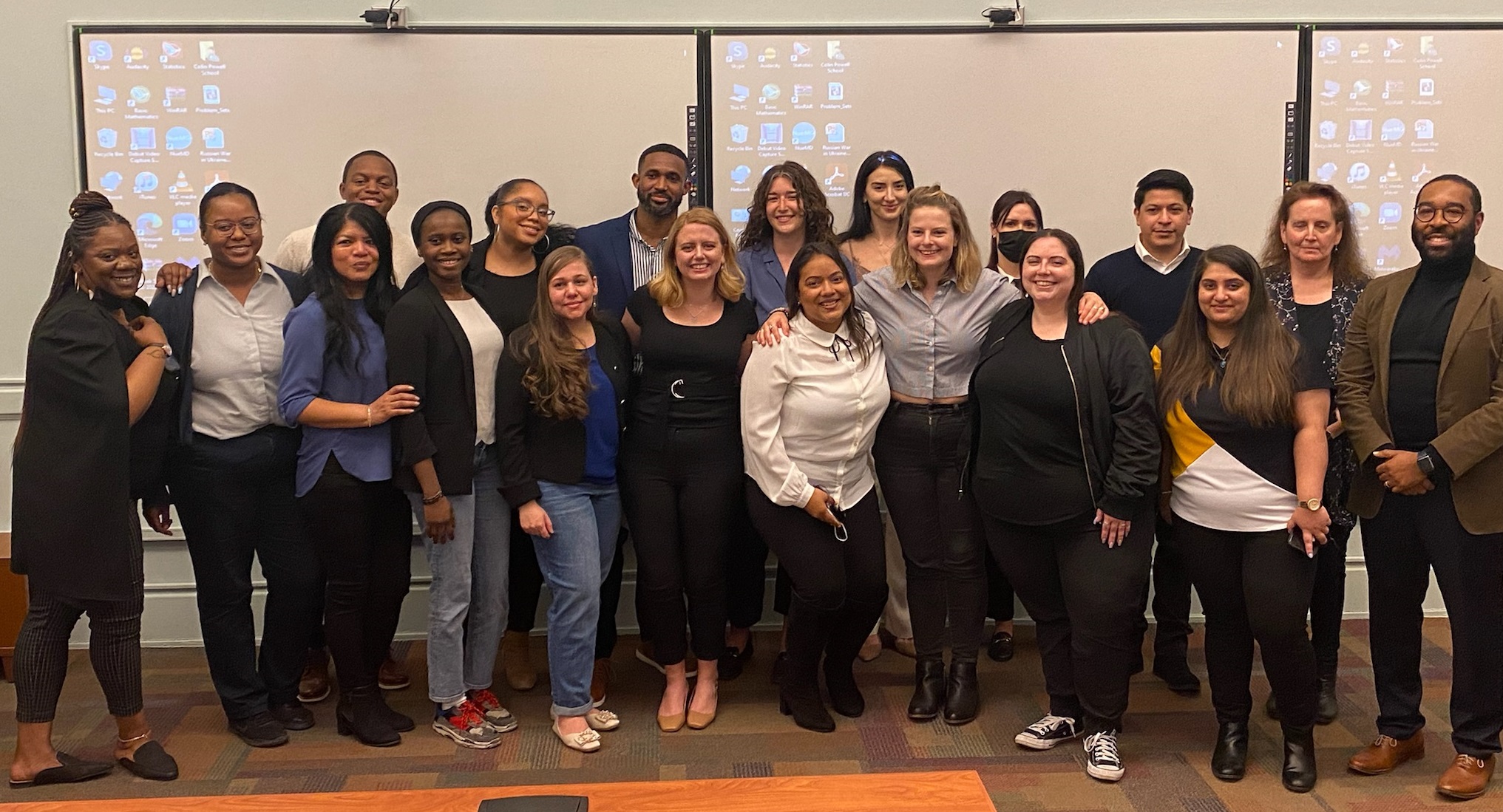MPA Program at CCNY

The Spring 2022 MPA Capstone projects explored a central theme: how can working class communities of color in New York City grow their economies and improve outcomes in health, education, and housing by building local capacity to manage community resources and support civic and technological innovation?
The capstone is the culminating, semester-long project in which MPA students apply the skills and knowledge they have learned in the program to a social problem affecting New York City. Students work in teams to produce deliverables for a public sector or community-based client. The deliverables may include strategic plans, communications materials, research, policy recommendations, or other outputs of practical use to the client.
One client this year was the Bronx Cooperative Development Initiative (BCDI), a network of organizations, unions, and businesses working to create a more equitable, sustainable, and democratic economy in the South Bronx.
The students developed a plan for BCDI’s Bronx Innovation Factory, which promotes advanced manufacturing in the Bronx, to design, build, and market an indoor air purifier with a built-in air quality monitor. Students identified potential partners for the project, including foundations, social impact investors, and universities. Indoor air quality is often overlooked as a factor contributing to the Bronx’s disproportionately high asthma rates. This device, produced locally, would improve residents’ health and also create employment and generate local capital in the Bronx.
Another client this year was the Center for NuLeadership on Human Justice and Healing, a Brooklyn-based organization working to replace the dominant “criminal justice” model of public safety with a “human justice” framework that centers human rights and human development in the context of economically and environmentally healthy communities.
The capstone team conducted a statistical assessment of the impact of government programs on a range of indicators of social well-being, including crime, health, wealth, housing, and education in three predominantly white neighborhoods and three neighborhoods of color in Brooklyn. The students found that increased government funding for key programs had no discernable impact on well-being in any of the six neighborhoods. They also identified flaws in public agencies’ methods of outcome measurement and data collection. The team recommended increasing community participation in program planning and oversight to improve the programs’ performance.
Each of this year’s capstone projects brought a fresh, critical analysis to persistent social problems. Both teams broke through the silos of public, private, and nonprofit work and employed interdisciplinary, cross-sectoral strategies – a core pillar of the MPA curriculum. They did so with a commitment to advancing social justice by empowering communities marginalized from power and shifting the institutions that perpetuate inequality in our society.
Find out more about the Spring 2022 MPA Capstone projects. Interested in becoming part of the MPA community? We are recruiting applicants for our Fall 2022 Cohort. Apply today.